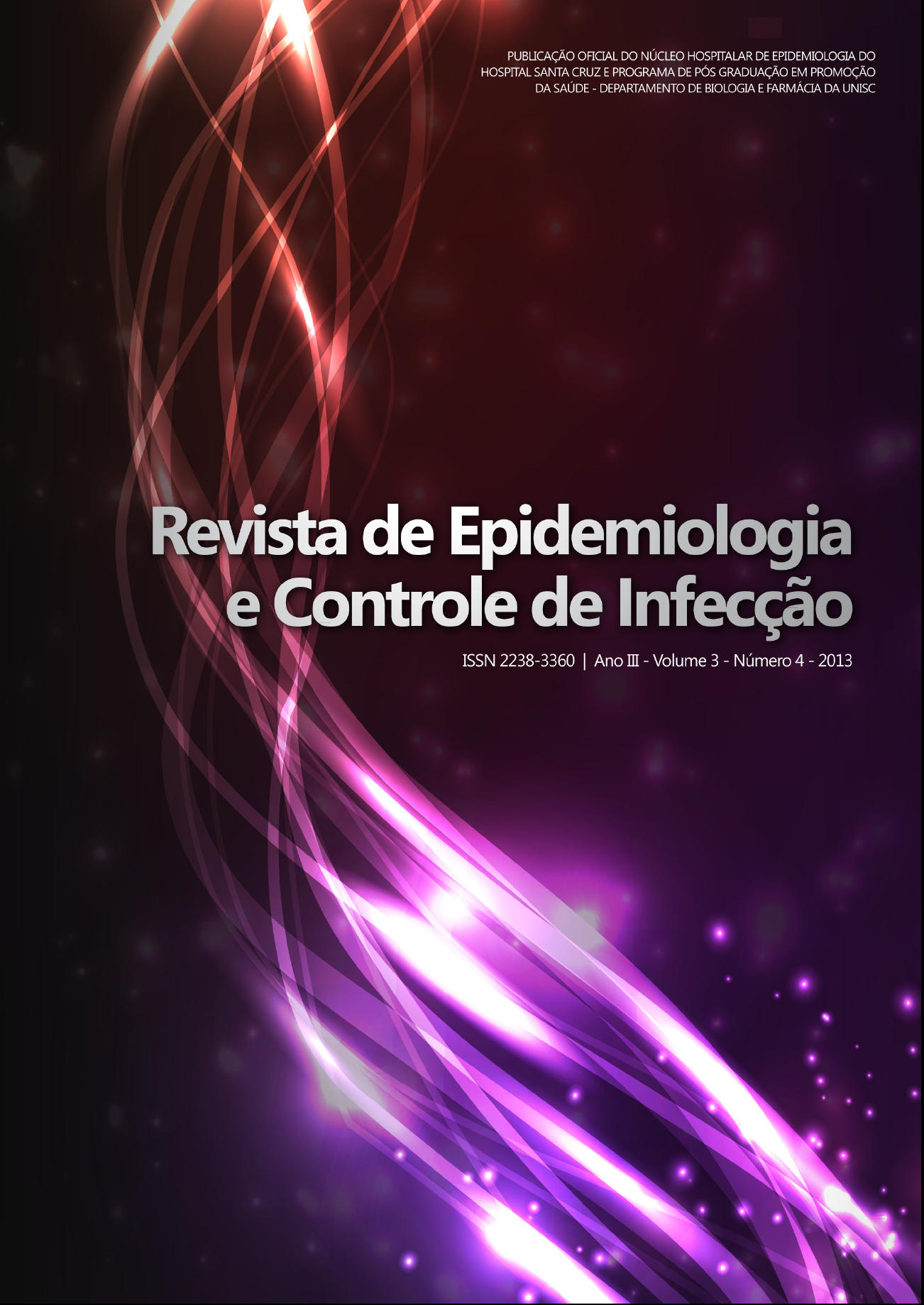Respiratory symptoms and active tuberculosis in a prison in Southern Brazil: associated epidemiologic variables
DOI:
https://doi.org/10.17058/reci.v3i4.3963Resumo
Backgound and Objectives: This study is justified by the high TB prevalence in prisons, which constitutes a public health problem and aims to estimate the prevalence of active tuberculosis (TB) and determine the variables associated with respiratory symptoms in a prison in Brazil. Methods: This is a descriptive study of 262 inmates divided into respiratory symptomatic and asymptomatic groups. Samples were evaluated by microscopy following the cultivation of the sputum from symptomatic individuals. Associated epidemiological variables were also evaluated. Results: Among the 262 inmates included, 178 (68%) were considered symptomatic, and of these, 25 (14%) were diagnosed with active TB. The contribution of culturing in the detection of TB cases was 48%. The prevalence of active TB was 9,542/100.000. Low educational level, use of drugs and alcohol, prison recidivism, and previous TB and HIV-positive status were associated with the presence of respiratory symptoms. Being male, single, black, a prison recidivist, an alcoholic and HIV-seropositive was associated with the development of TB. The rate of TB/HIV co infection was 60%. The outcome was death in 12% of patients. Drug therapy interruption was reported by 96% of patients. Conclusions: The studied population showed a high prevalence of TB and TB/HIV co-infection. In addition, the rates of drug therapy interruption and mortality were alarmingly elevated. KEYWORDS: Epidemiology. Tuberculosis. Coinfections. HIV infection. Prisons.Downloads
Downloads
Publicado
Como Citar
Edição
Seção
Licença
The author must state that the paper is original (has not been published previously), not infringing any copyright or other ownership right involving third parties. Once the paper is submitted, the Journal reserves the right to make normative changes, such as spelling and grammar, in order to maintain the language standard, but respecting the author’s style. The published papers become ownership of RECI, considering that all the opinions expressed by the authors are their responsibility. Because we are an open access journal, we allow free use of articles in educational and scientific applications provided the source is cited under the Creative Commons CC-BY license.


